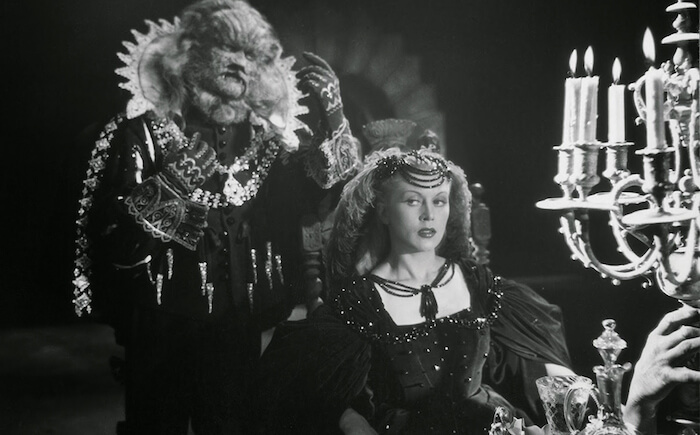The Best Old Movies on a Big Screen This Week: NYC Repertory Cinema Picks, February 10-16
Beauty and the Beast (1946)
Directed by Jean Cocteau
The enjoyable paradox at the center of Cocteau’s cinema is the sense that his films are both defiantly otherworldly yet utterly handmade, most evident in his most famous work. The opening confirms Cocteau’s awareness of the dichotomy, as he begs the audience to conjure the lost childhood innocence with which they can properly be induced into the fairy tale, all while the credits are written out in idiosyncratic chalk script. Despite working from an established story, Cocteau mixes the theatrical, operatic and the folkloric to create a cinematic mise-en-scène that lends itself to moments that are every bit as surreal as his previous credo, The Blood of a Poet, if inherently more recognizable. Characters speak in a poetic, witty cadence while framed in striking compositions (visual and musical) that serve to both celebrate and undermine the spectacle in this, perhaps the most accomplished postwar French film to precede and influence the New Wave. Indeed, the late Jacques Rivette inherited Cocteau’s sense of playfulness and tragic irony, as well as some of the more primal elements of his aesthetics, if not his budgets or visual splendor. Eric Barroso (February 12-18 at Film Forum; showtimes daily)
You might also like 





















